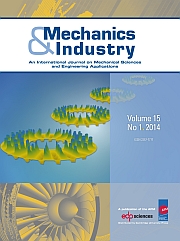No CrossRef data available.
Article contents
Reliability oriented optimum design of the Large Hadron Collider magnet-to-magnet interconnections
Published online by Cambridge University Press: 24 February 2004
Abstract
The quest for high particle energies of modern super conducting lepton and hadron storage rings assumes a strong minimisation of the non-magnetic interconnection zones when compared to the total magnetic length of the main quadrupoles and the dipoles. The ratio of non-magnetic to magnetic zones in the LHC is close to 3%. Such a low percentage leads to a very compact design of systems and sub-systems situated in the interconnections, like the mechanical compensation system, composed of the bellows expansion joints, that have to compensate for the thermal contraction of the magnets. Given the complexity of the LHC interconnections, the requirements concerning their reliability were considerably increased since the availability of the collider for physics cannot be compromised. The failure modes taken into account in the present analysis are grouped into 3 categories: material failures, structural stability failures and fatigue failures. Optimisation of stainless steel for cryogenic applications has been carried out. Also, a concept of reliability oriented parametric optimisation of the LHC interconnections is presented.
Keywords
- Type
- Research Article
- Information
- Copyright
- © AFM, EDP Sciences, 2004




